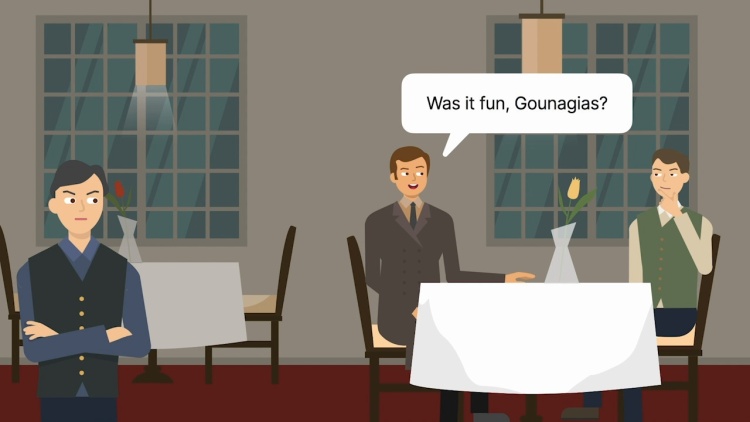State v. Gounagias
Washington Supreme Court
153 P. 9 (1915)
- Written by Kelsey Libby, JD
Facts
On April 19, 1914, Gounagias (defendant) and his Greek compatriot Dan George were consuming alcohol, which caused Gounagias to become incapacitated. George made offensive comments to Gounagias and ultimately committed the “unmentionable crime” (i.e., rape) against him. The next day, Gounagias begged George not to tell others about the incident, but George did tell some of their Greek countrymen. Thereafter, Gounagias was tormented and ridiculed by his countrymen and began suffering from illness and headaches as a result. On May 6, 1914, Gounagias was suffering from one such headache when he visited a coffeehouse where several of his countrymen were gathered. The group taunted Gounagias and made suggestive gestures, which, Gounagias maintained, caused him to fly into an uncontrollable rage. Gounagias maintains that he decided to kill George at that time. Gounagias ran to his own house to retrieve his revolver, went to George’s house, and shot George in the head five times while George slept. George died and Gounagias was charged with first degree murder. At trial, defense counsel urged that the evidence supported a lesser charge of manslaughter, but that argument was not permitted, and the jury was instructed only on murder. Likewise, the court excluded the evidence about George circulating the story against Gounagias’s wishes and the substance of what the countrymen said to taunt Gounagias right before the killing. The court also excluded the testimony of an expert psychiatrist who offered that Gounagias acted on an involuntary impulse triggered by memories stirred up when he was taunted at the coffeehouse. Gounagias was found guilty of murder and appealed the conviction on the grounds that the evidence should have been admitted.
Rule of Law
Issue
Holding and Reasoning (Ellis, J.)
What to do next…
Here's why 907,000 law students have relied on our case briefs:
- Written by law professors and practitioners, not other law students. 47,100 briefs, keyed to 996 casebooks. Top-notch customer support.
- The right amount of information, includes the facts, issues, rule of law, holding and reasoning, and any concurrences and dissents.
- Access in your classes, works on your mobile and tablet. Massive library of related video lessons and high quality multiple-choice questions.
- Easy to use, uniform format for every case brief. Written in plain English, not in legalese. Our briefs summarize and simplify; they don’t just repeat the court’s language.





